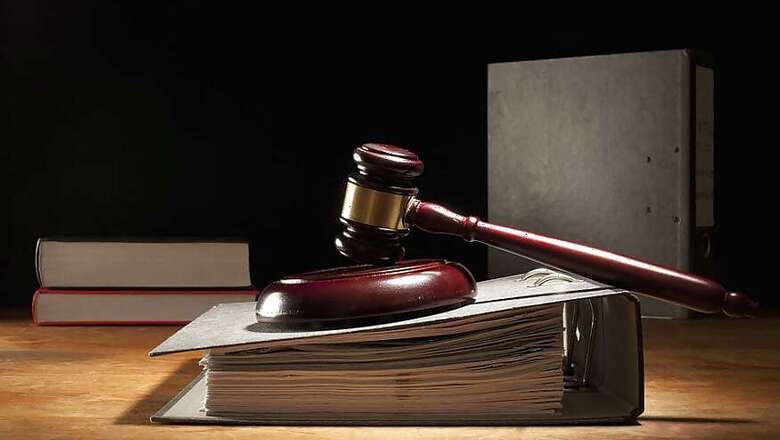
views
New Delhi: Though former judges and chief justices have at times spoken about the presence of corruption in lower judiciary, the government on Wednesday stated in the Lok Sabha that since the Central government has no authority to look into complaints of corruption in subordinate judiciary, “no data were maintained".
The government also said that it does receive “complaints from time to time” alleging corruption in the judiciary.
The Minister of State for Law and Justice was asked whether the government has received any complaints or representations regarding alleged corruption in judiciary and if so to provide details of such cases in the last three years.
However, PP Chaudhary, while stating that Central government does not have control over corruption cases in the subordinate judiciary, pointed out that no data were maintained in that regard.
“In so far as subordinate judiciary in the State is concerned, the administrative control over the members rests with the concerned High Court and state government. The Central Government has no mandate to look into such complaints or to monitor the action taken on the same. As such, no data in this regard is maintained,” replied the Minister.
With a count of over 600 district courts and hundreds of subordinate courts, the heterogeneous lower judiciary acts as the primary link between Indian judiciary and its citizens.
However, corruption in the lower judiciary has been a moot point of legal discussions over the past couple of years.
After Andhra Pradesh High Court in 2012 suspended additional special judge for CBI cases, T. Pattabhi Rama Rao, following allegations of corruption filed by the CBI, where he was alleged to have taken a bribe of Rs 5 crore to grant bail to former Karnataka minister Gali Janardhana Reddy in the illegal mining case, former Chief Justice of India VN Khare, in an interview, had said that, “Corruption in the lower courts is no secret. Sometimes, in the high court as well, cases of corruption have surfaced.”
This government's reply also comes close on the heels of a recent Supreme Court judgment where the then Chief Justice of India, Justice JS Khehar, and justices Dr DY Chandrachud and Sanjay Kishan Kaul, held that even if allegations of corruption were not aimed at any particular Court, the Contempt of Courts Act could be invoked, if the alleged contemptuous action is aimed at more than one court, or a large number of courts, all at once.
The government has accepted that it does get representations or complaints from time to time regarding corruption in judiciary.
“Complaints or representations alleging corruption in judiciary are received by the Government from time to time,” replied Chaudhary, who also stated that CJI is competent to receive complaints against the conduct of the Judges of the Supreme Court and the Chief Justices of the High Courts. Similarly, the Chief Justices of the High Courts are competent to receive complaints against the conduct of High Court Judges.
Even former CJI, Justice P Sathasivam, had in June 2013 interview, said, “I should fairly admit that the judiciary is not untouched by corruption. On some occasions in the past, few judges have willfully dishonoured the oath by adopting corrupt practices.”


















Comments
0 comment